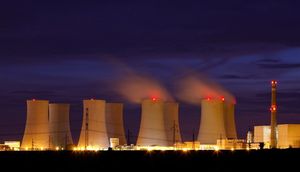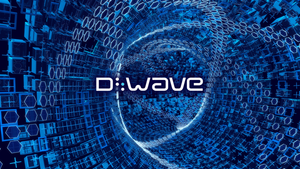
In late 2025, the technology industry finds itself at a critical juncture, marked by unprecedented innovation, intense market competition, and increasing public scrutiny. This dynamic environment has ignited a fervent demand for highly skilled public relations (PR) professionals, who are now recognized as indispensable strategists in shaping brand narratives, building market awareness, and fostering trust. The traditional role of PR has dramatically evolved, moving beyond mere media outreach to become a central pillar of corporate strategy, deeply integrated with marketing, content, and even product development.
This shift is driven by a complex interplay of factors: the rapid proliferation of AI technologies, a crowded startup landscape, and a global audience that demands transparency and ethical accountability. Tech companies, from nascent AI startups to established giants, are realizing that technological prowess alone is insufficient; effective, authentic communication is paramount to navigate the intricate ethical dilemmas, differentiate in saturated markets, and build lasting credibility in an "always-on" digital world.
The Evolving Craft: Data, AI, and Authentic Storytelling Reshape Tech PR
The modern tech PR professional in late 2025 is a multifaceted expert, blending traditional communication strengths with advanced digital, analytical, and strategic capabilities. The role has expanded to encompass not just media relations, but also reputation management, crisis communication, thought leadership, internal communication, and investor relations. Tech companies are actively seeking individuals who can translate complex technical information—like the nuances of generative AI or blockchain—into compelling, relatable narratives that highlight real-world impact and societal benefits.
At the heart of this evolution are several key strategic shifts: Data-driven PR has become non-negotiable, with campaigns increasingly informed and optimized by analytics. AI-powered tools are now integral, assisting with everything from real-time media monitoring and sentiment analysis to identifying emerging trends and even drafting initial content. This allows PR teams to measure campaign performance with precision, demonstrating tangible return on investment (ROI) and aligning PR initiatives directly with business objectives.
Authenticity and value-driven storytelling are paramount. Brands are moving beyond purely promotional messaging, focusing instead on transparency, ethical practices, and humanizing leadership to build genuine trust. This includes showcasing company values, engaging audiences with behind-the-scenes content, and proactive communication around corporate social responsibility (CSR) and diversity, equity, and inclusion (DEI) initiatives. The "return of human connection" is also notable, with live events, conferences, and in-person meetings with journalists regaining importance for strengthening relationships.
Furthermore, integrated communications are now the standard. The lines between PR, marketing, content, and influencer strategies are increasingly blurred, necessitating a converged approach. Content reigns supreme, but with a strong multimedia focus, including short-form videos, podcasts, and interactive media. Niche and authentic influencer marketing continues to play a pivotal role, with a shift towards industry-specific and micro-influencers whose credibility resonates more deeply with target audiences. AI tools are even being used to optimize influencer selection and campaign management.
This new landscape also demands new approaches to talent acquisition. There's a critical need for tech-savvy PR professionals who are not only adept communicators but also possess AI literacy, data analytics skills, and a deep understanding of ethical communication. Companies are prioritizing professional development and upskilling for their existing teams, recognizing that a competitive talent market requires investing in growth. The "hiring reset" in late 2025 means a greater focus on experienced professionals, as AI automates more routine entry-level tasks, making analytical thinking, resilience, flexibility, and creative problem-solving highly valued attributes.
Strategic Imperatives: How Evolving PR Shapes Tech Giants, AI Startups, and the Competitive Landscape
The increasing demand for skilled PR professionals and the evolution of communication strategies are having a profound and varied impact across the tech ecosystem, creating new strategic imperatives for all players.
For AI companies, effective PR is no longer a luxury but a fundamental necessity. These firms face the unique challenge of translating complex machine learning models into digestible insights while proactively addressing public skepticism regarding AI ethics, data privacy, and potential societal impacts. PR is vital for establishing credibility, attracting investment, and differentiating their offerings in a rapidly saturating market. Companies that can effectively position their executives as thought leaders, leverage exclusive data reports, and align innovations with global challenges through compelling, data-backed storytelling stand to gain a significant advantage.
Established tech giants (e.g., Alphabet (NASDAQ: GOOGL), Microsoft (NASDAQ: MSFT), Apple (NASDAQ: AAPL)) face a different set of challenges. While possessing vast resources, they must adapt their PR to manage innovation at scale, address intensifying ethical dilemmas surrounding their AI practices, and navigate evolving global regulations. Their reputation management strategies must extend beyond product promotion to drive global conversations, particularly on issues like AI governance and compliance. These giants benefit immensely from leveraging AI for sophisticated data analysis, sentiment analysis, and predictive algorithms to fine-tune messaging, but they must balance technological efficiency with authentic human creativity and transparently disclose their AI usage to maintain public trust.
For tech startups, particularly in the AI space, PR is a non-negotiable investment. It's crucial for building brand visibility, establishing credibility, and attracting early-stage investors and partners in fiercely competitive markets. Startups must craft compelling brand narratives and unique value propositions to cut through the noise. Positive media attention and endorsements from industry experts provide much-needed legitimacy. Due to resource constraints, startups often need to be highly strategic, focusing on problem-solving through case studies and potentially partnering with specialized AI PR agencies. Like their AI counterparts, they must also actively address public skepticism by showcasing ethical use and real-world problem-solving capabilities.
Ultimately, those who stand to benefit most are skilled PR professionals who upskill in AI tools, data analytics, and ethical communication, as well as PR agencies that invest in AI training and offer specialized, data-driven services. Adaptive tech companies across the spectrum, embracing modern, transparent, and data-informed PR strategies, will build stronger brands, attract top talent and investment, and maintain public trust, gaining a significant competitive edge in the crowded market of late 2025.
Beyond the Hype: The Wider Significance of Tech PR's Evolution
The transformation of tech PR in late 2025 carries profound wider significance, deeply intertwining with the broader AI landscape and shaping societal perceptions of technology itself. Historically, PR has been the vital bridge translating complex innovations into public understanding, fostering trust, and managing reputations. Today, with AI at the forefront, this role is more critical than ever.
One of the most significant impacts is on public perception and trust in AI technologies. As AI becomes increasingly integrated into daily life, effective and ethical tech PR is essential to demystify its complexities, communicate its real-world applications, and proactively address public concerns regarding ethics, data privacy, and potential societal disruption. Transparent communication helps manage expectations and encourages responsible adoption, while a lack of it can severely erode public confidence.
However, this evolution also introduces significant potential concerns. The dual nature of AI means it can assist in fact-checking but also generate highly convincing fake content, including deepfakes and AI-driven bots, which can rapidly spread misinformation and disinformation. This poses an immense challenge for PR professionals, who must ensure the accuracy and responsibility of their messaging while actively combating false narratives. The ethical use of AI in communication is paramount, demanding transparency, accountability, and careful consideration of algorithmic bias and data security. Undisclosed AI-generated content can lead to deep skepticism and distrust.
Compared to previous tech communication challenges, the current landscape, heavily influenced by AI, presents unique complexities. While past eras, like the "dot-com bubble," involved managing hype and investor expectations, they lacked the integrated digital ecosystem and real-time scrutiny of today. The speed and scale of information dissemination have exponentially increased, making crisis management far more challenging. Furthermore, the ethical scrutiny surrounding AI is unprecedented, moving beyond past concerns about data privacy to encompass algorithmic bias, explainability, and the responsible use of autonomous systems. This demands a higher level of transparency and accountability from tech companies than ever before.
In essence, the evolution of tech PR in late 2025 is not just about promoting products; it's about shaping the narrative of the future. It's about ensuring that as technology advances at an dizzying pace, public understanding, trust, and ethical considerations keep pace, ultimately influencing how AI is integrated into society and its long-term impact on humanity.
The Horizon: Future Developments and Expert Predictions for Tech PR
Looking ahead, the trajectory of tech PR in the coming years promises even deeper integration of AI, a continued emphasis on authenticity, and an ever-evolving set of challenges. Experts predict a future where PR professionals are not just communicators, but strategic advisors navigating complex ethical and technological landscapes.
In the near-term (2025-2026), expect an intensified focus on responsible AI integration in PR workflows, with an emphasis on human oversight, ethical guardrails, and refining AI output for authenticity and brand voice. Hyper-personalization will move beyond basic customization, with AI enabling deeply tailored messaging and pitches based on individual preferences. Brands will increasingly act as their own media powerhouses, creating multi-channel content to engage directly with audiences, while micro-influencers will become even more valuable for niche, authentic connections. Video content and live streaming will continue to dominate.
Long-term trends suggest that tech PR will become an even more critical driver of innovation, translating complex technologies like AI and quantum computing into accessible narratives. There will be an enhanced demand for transparency and ethical practices, with PR playing a central role in demonstrating a company's commitment to social and environmental responsibility. The media landscape will continue to fragment, with independent journalists, bloggers, and social media personalities gaining further influence, necessitating agile engagement strategies. Emerging technologies like virtual and augmented reality (VR/AR) are also poised to create new avenues for immersive brand storytelling.
Potential applications of AI in PR are vast and growing. Beyond current uses in data analysis and content drafting, AI will enable advanced predictive analytics to forecast trends, identify reputation risks, and optimize campaign targeting with unprecedented precision. It will facilitate the generation of diverse multimodal content (video, images) and further streamline workflows, freeing human professionals for high-level strategic and creative work. AI will also enhance crisis management through early risk assessment and proactive signal detection, supporting human teams with faster, more informed responses.
However, significant challenges remain. The sheer speed of technological change demands constant adaptation from PR professionals. Balancing technical accuracy with simplicity, especially for complex AI concepts, will continue to be a crucial task. The proliferation of misinformation and deepfakes poses an existential threat to trust, making authenticity and stringent fact-checking more vital than ever. Moreover, the increasing demand for measurable ROI requires robust data analytics and strategic alignment, pushing PR beyond traditional metrics.
Expert predictions largely converge: AI will be an indispensable enhancer, not a replacement, for PR. Human creativity, empathy, critical judgment, and relationship-building will remain irreplaceable. The shift from reactive to predictive PR will be profound, with AI enabling professionals to anticipate trends and shape conversations proactively. Authenticity and human connection will reign supreme, with the value of genuine, human-generated content increasing significantly as AI-generated content becomes more commonplace. The focus on ESG (Environmental, Social, and Governance) and CSR will intensify, with brands facing growing pressure to align communications with genuine values and initiatives.
A New Era of Influence: Wrapping Up Tech PR's Transformation
The journey of tech PR in late 2025 marks a pivotal moment in the industry's history. It underscores a fundamental shift from a peripheral function to a strategic imperative, driven by the relentless pace of technological innovation, particularly in AI, and an increasingly discerning global audience.
Key takeaways highlight that modern tech PR is digital-first, data-driven, and deeply integrated with broader business objectives. It demands professionals who are not only expert communicators but also technologically fluent, ethically grounded, and adept at leveraging AI for strategic advantage. Brand building now hinges on authenticity, transparency, and compelling storytelling that humanizes technology and demonstrates real-world impact.
This evolution's significance in tech industry history cannot be overstated. PR has always been crucial for bridging the gap between innovation and public adoption. Today, it stands as the primary guardian of trust and reputation in an era where technological power is immense, and its ethical implications are under constant scrutiny. Without sophisticated and responsible PR, the groundbreaking advancements of AI risk being misunderstood, mistrusted, or misdirected.
The long-term impact points to an even more integrated and strategic role for PR. Professionals will be key navigators of complex ethical landscapes, ensuring that as technology permeates every facet of life, communication remains transparent, empathetic, and aligned with societal values. The lines between marketing, corporate communications, and public affairs will continue to blur, with PR taking on a more central role in defining brand purpose and managing public trust on a global scale.
What to watch for in the coming weeks and months includes the continued refinement of responsible AI integration in PR, with a focus on ethical guidelines and human oversight. Expect an acceleration in hyper-personalized communications and a further shift towards niche influencer engagement. Crisis communication preparedness will be paramount, as companies must be ready to respond with speed, transparency, and accountability in a real-time information environment. Finally, the emphasis on value-based marketing and genuine ESG messaging will intensify, as consumers increasingly demand that brands not only innovate but also act as responsible corporate citizens. The tech industry's future success will be inextricably linked to its ability to communicate authentically and build enduring trust.
This content is intended for informational purposes only and represents analysis of current AI developments.
TokenRing AI delivers enterprise-grade solutions for multi-agent AI workflow orchestration, AI-powered development tools, and seamless remote collaboration platforms.
For more information, visit https://www.tokenring.ai/.





